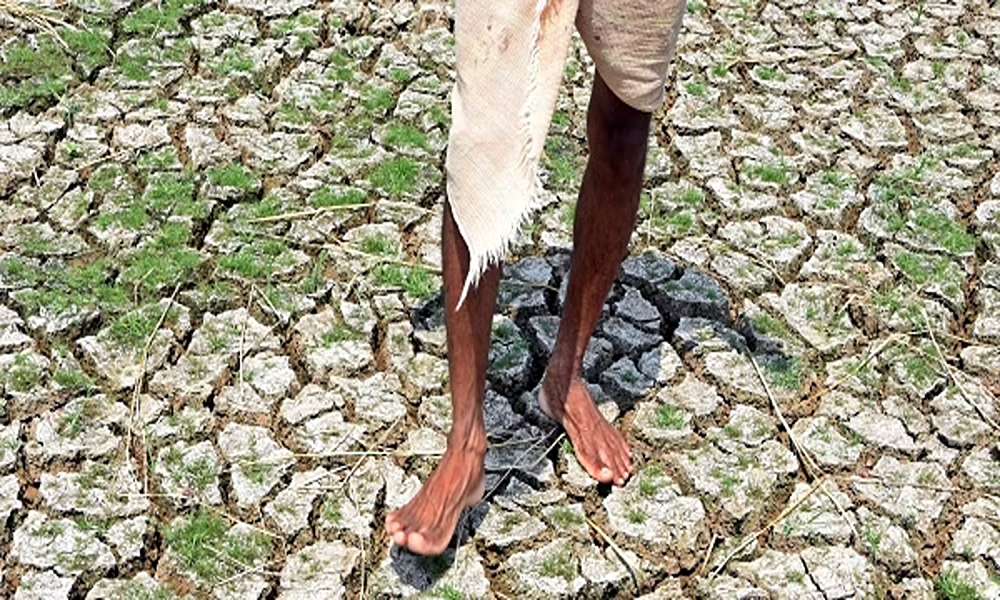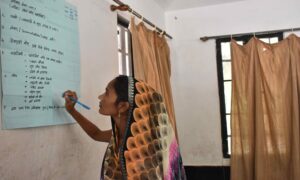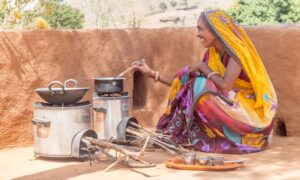‘Groundwater levels have gone down immensely. Water in the wells would earlier be at 50 ft., but now it is deeper at around 80 ft.’ shares Nathulal, a farmer from Adkaliya village near Udaipur. He lives with his wife & two children & is the provider of the family.
He talks about the climate change he has noticed over the past decade.
The scorching summers have affected his productivity to work in the fields & in turn, affected his income. He, along with others who work on his field, spend tiring days under the direct heat of the sun.
Irrigation is another challenge for him. He uses a water pump to irrigate his crops, in comparison with his own father who used cattle to bring water to the fields.
Farmers like him have minimal access to even the most essential farming technology, facilities & even resources as basic as water. They are the ones experiencing the direct & negative impact of climate change.
Today, over 50% of Indian farmers are dependent on rain for irrigation & nearly 30 crore are impacted by drought every year.
‘Crops require water at an increasing rate in this summer heat – at least once every day, or else we would lose them all to crop burn.’ shares Bhagwat, a farmer from Lohsing village, adding that getting water is a big challenge for him as well.
He uses a pump for irrigation. However, he only gets electricity 1-3 hours a day, which is not enough.
Khem, another farmer from Lohsing village, lives with his wife & 4 children who are all involved in labour work. He shares with us the difficulties he faces when working on his farm.
If only we could get a steady source of water, it would solve most of our problems. We would be able to work more & work harder.’
Many such farmers across Udaipur, & other villages across India, are bearing the consequences of escalating climate change. It is not just limited to the scarcity of water, but it also includes the uncertain changes in seasons such as immense rise in temperature or heavy rainfall leading to floods.
It is being predicted that by 2030, millions of people would become affected by climate change.
Thus, it becomes only relevant that these farmers be provided with sustainable support in form of better, cheaper equipment, tools & techniques to ease out their struggles. Such support would increase their productivity, income & in turn, their standard of living.
As agriculture is the primary source of income for these farmers, Udaipur Urja is on a mission to provide such support to the farming communities & households affected by climate change.
Initial step towards this big change is Udaipur Urja’s impact on 40,000+ households by way of introducing them to essential products like their Improved Cookstove & solar lights. The enterprise is constantly engaged in identifying newer technologies and making them accessible to effectively mitigate the effects of climate change on these households.




